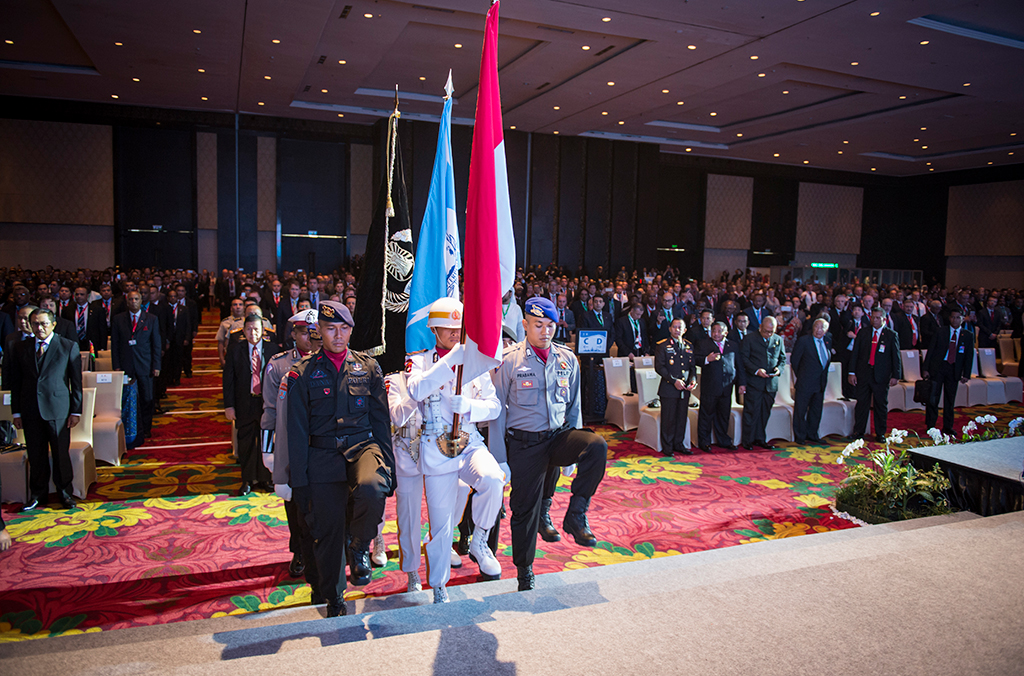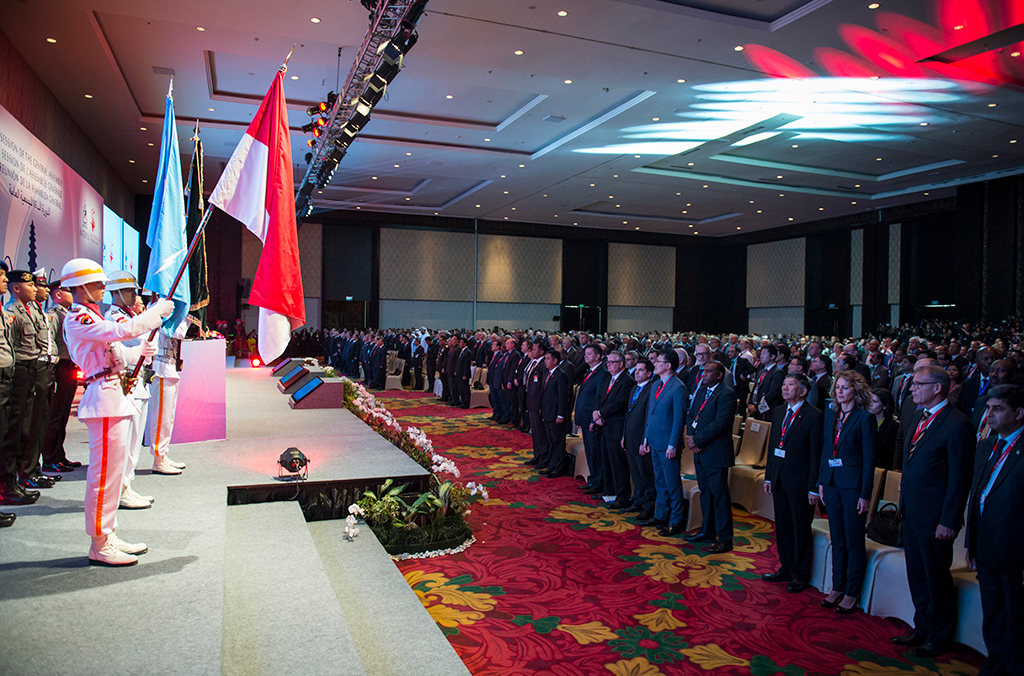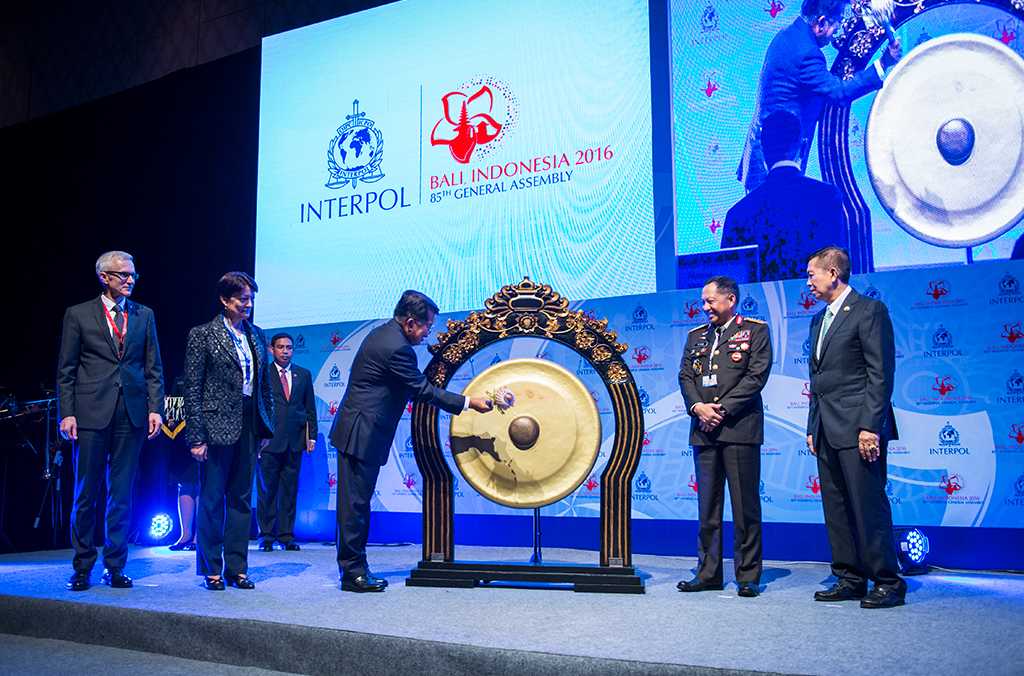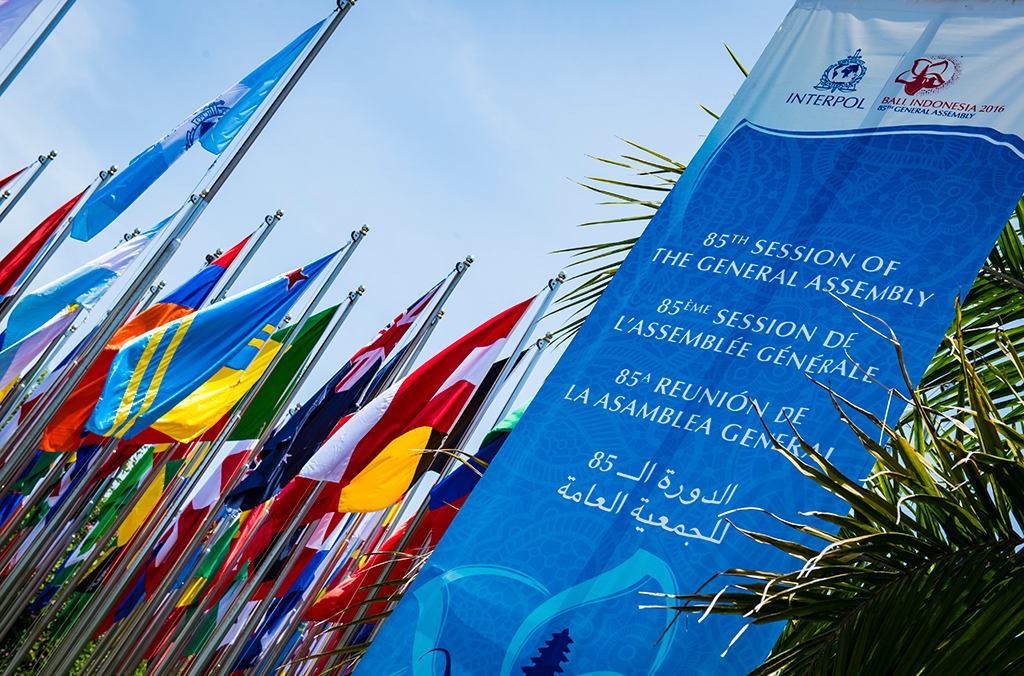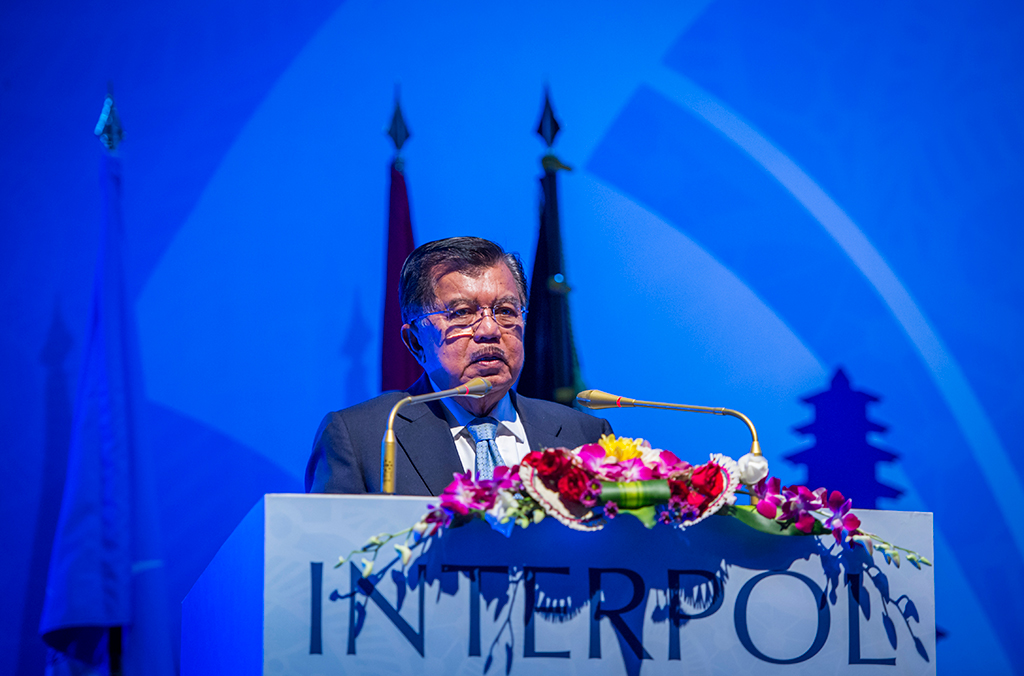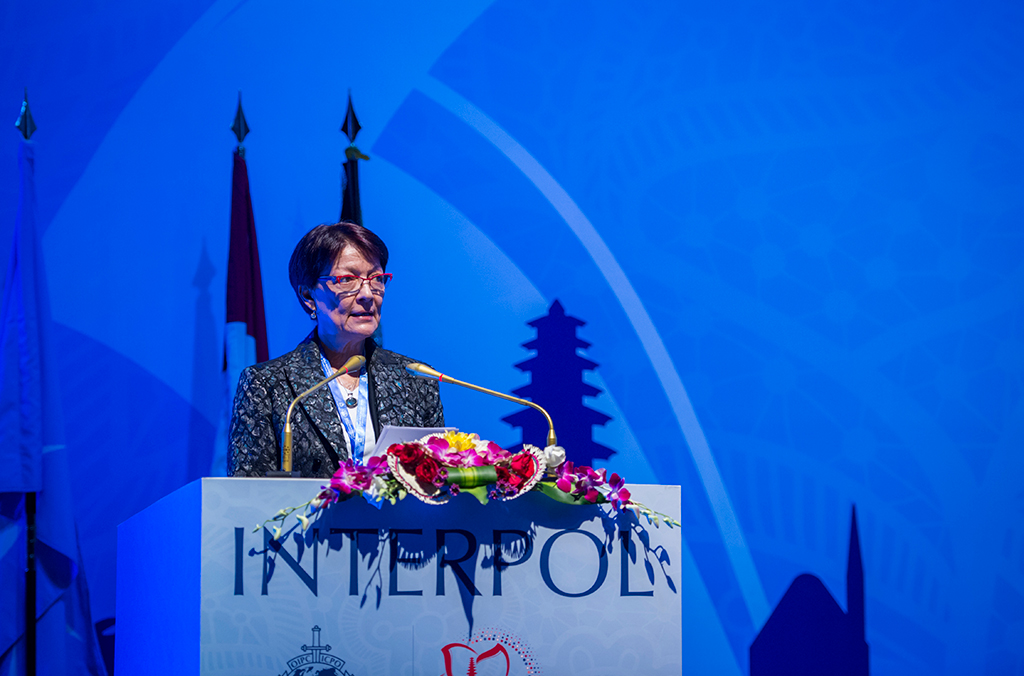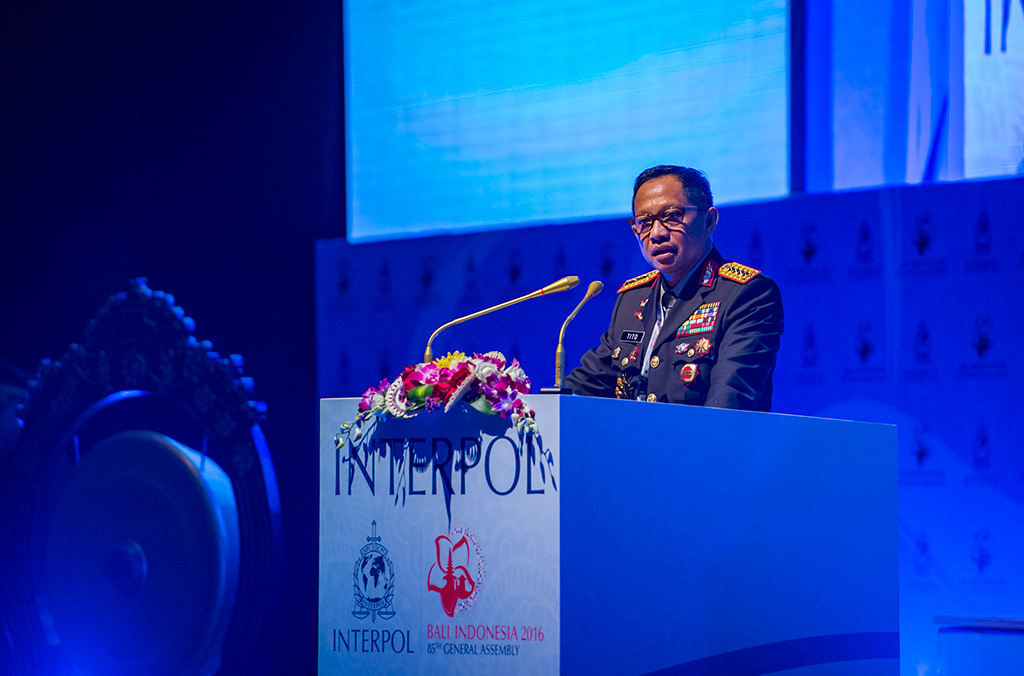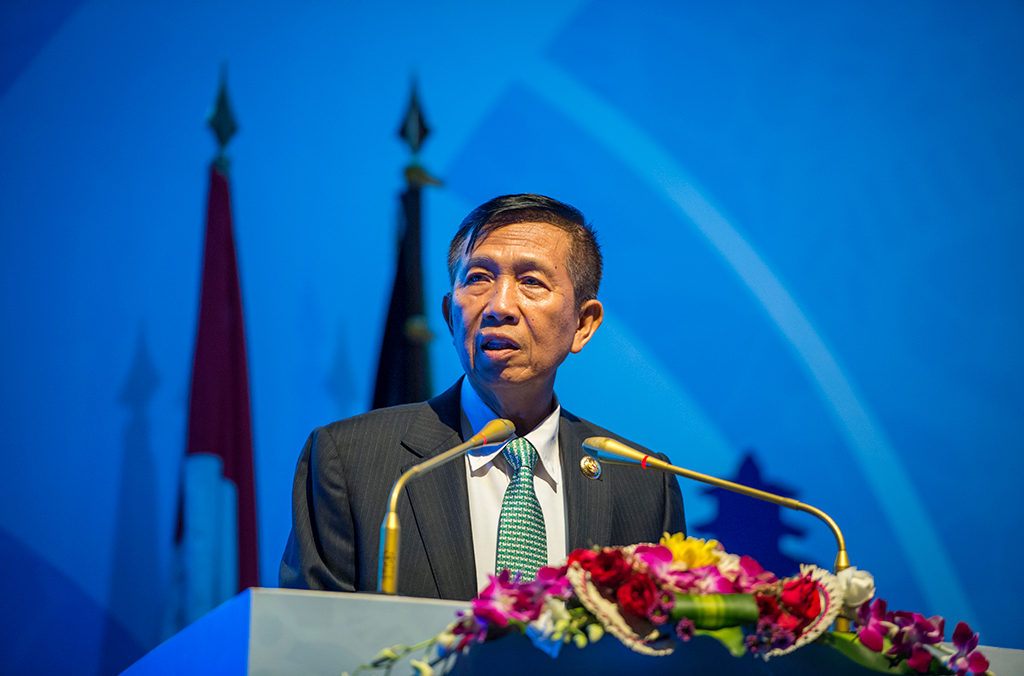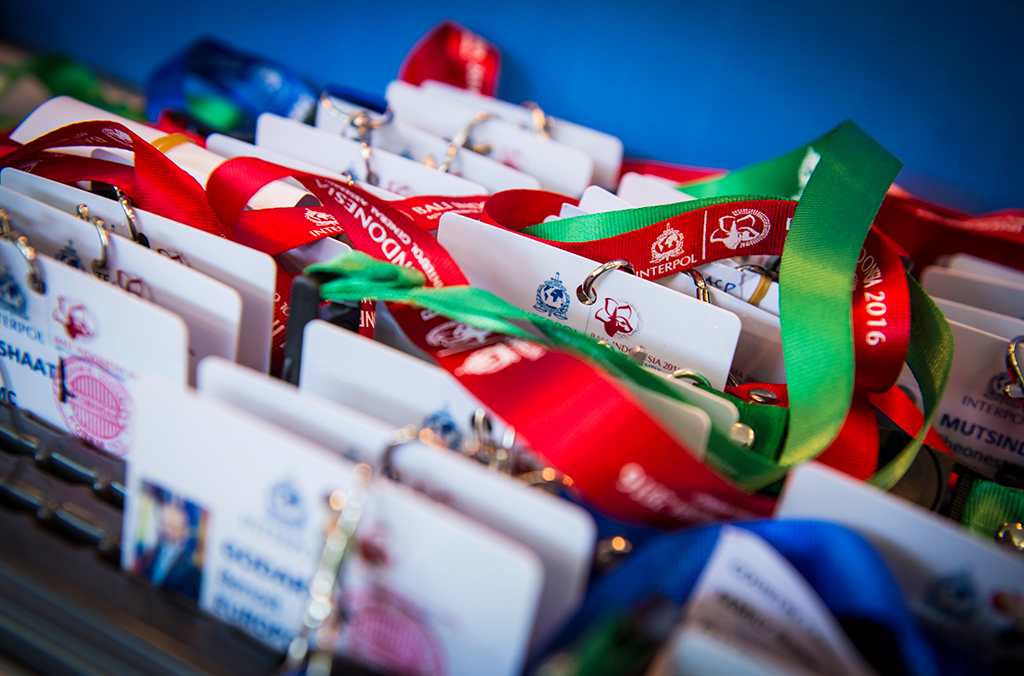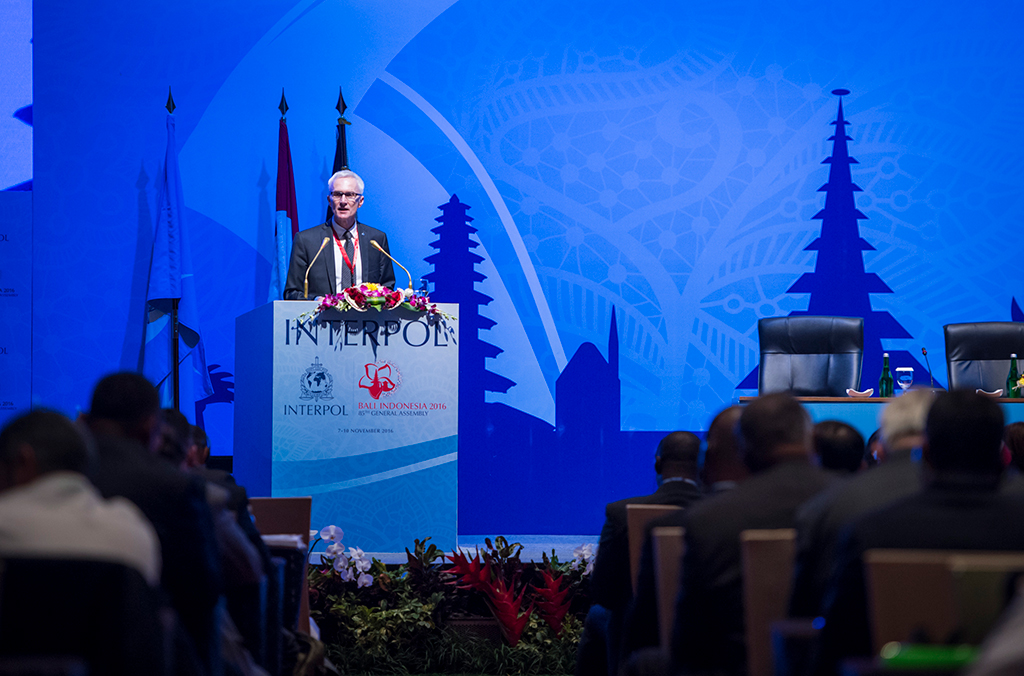BALI, Indonesia – Identifying and meeting member countries’ security needs in the face of an ever-changing threat landscape is the focus of the INTERPOL General Assembly which opened in Bali, Indonesia today.
With increased concerns about foreign terrorist fighters returning from conflict zones, a key issue during the four-day (7 – 10 November) conference will be the need for enhanced information sharing via INTERPOL, particularly biometric data, to assist countries identify and interdict these potential threats.
The detection, investigation, prevention and prosecution of organized crime groups operating across a range of illicit markets and addressing the increasing sophistication and diversification of the modus operandi of cybercriminals will also be addressed during the conference.
Opening the meeting, which is being attended by some 830 police chiefs and senior law enforcement officials from 164 countries, Indonesia’s Vice President Muhammad Jusuf Kalla said: “We are here because the INTERPOL General Assembly is a forum to realise global interests related to our shared responsibility in protecting and securing the global community.
“Good cooperation between law enforcement will help develop and maintain security and stability and support economic development in an ever-developing and borderless world.”
INTERPOL President Mireille Ballestrazzi said the Organization was better placed than ever to anticipate the challenges facing the global policing community.
“INTERPOL’s strategies to counter terrorism, organized and emerging crime and cybercrime, which will be presented during this conference, will provide crucial support in our united response to these global threats.
“However, to transform these plans from words into action requires full cooperation from all member countries,” said President Ballestrazzi.
Chief of the Indonesian National Police, General Tito Karnavian said in combating terrorism, organized crime and cybercrime, ‘INTERPOL is a very important partner in this multi-faceted fight, as it is the only organization which gives our international investigations effective outreach.’
With recommendations on enhancing INTERPOL’s information processing mechanisms also on the agenda, INTERPOL Secretary General Jürgen Stock said the Organization’s ability to meet the challenges of transnational crime also required it to respect and comply with the highest standards.
“As the world faces an increasingly complex threat landscape INTERPOL will, and must, continue to seek the widest possible international police cooperation,” said the INTERPOL Chief.
“No one country or region is safe from transnational crime threats, and it is INTERPOL’s role to ensure that vital policing information from any of our 190 member countries is securely and swiftly placed in the hands of frontline officers, where it is needed most,” concluded Mr Stock.
Delegates will also be updated on INTERPOL 2020, the Organization’s comprehensive reform initiative for its continued strong, effective development.
INTERPOL’s integrated border security policing capabilities to combat terrorism and transnational crime, in particular through the I-Checkit initiative, will be further considered by the international policing community at the conference.
The General Assembly will also elect a new President on the final day of proceedings.




